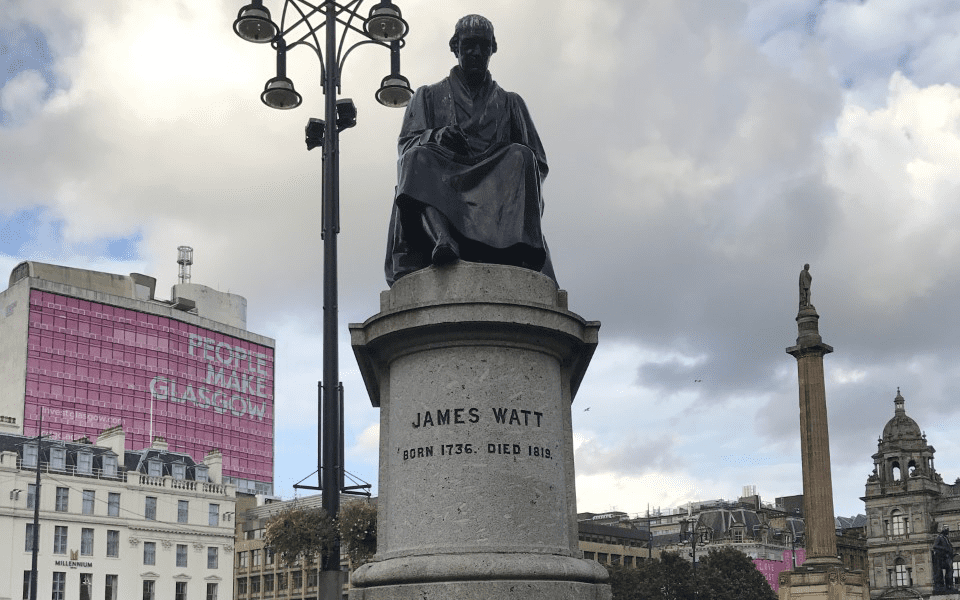
Taylor Research Team Presents in Glasgow
What happens when philosophers, social scientists, designers, and social entrepreneurs start talking?
New ideas for change, I hope.
In early September 2019, I traveled to Glasgow, Scotland to attend the 11th International Social Innovation Research Conference (ISIRC), the “world’s leading interdisciplinary social innovation research conference. ISIRC 2019 was hosted by the Yunus Centre for Social Business and Health at Glasgow Caledonian University (GCU), the university for the common good. (Browse the ISIRC 2019 full program.)
I joined scholars from across the globe interested in the theme of “Social Innovation: Local Solutions to Global Challenges.” The 350 or so participants included academic researchers, post-doctoral scholars, dissertation-writing students, lecturers as well as practitioners, educators, civil servants, and entrepreneurs –such as Claire Carpenter, the founder of Scotland’s leading social innovation incubator The Melting Pot.
Taylor Team at ISIRC
Design Thinking spanned two sessions and eight papers, including three affiliated with Taylor Center:
- Alessandra Bazzano (Social Entrepreneurship Professor at Tulane) and her co-authors shared work on a reporting guideline for design-based health research.
- Jordan Stewart (Tulane CCC doctoral student, shared findings from her research on “diffuse design”.
- I presented on “Design Capabilities for social innovation in a world of ‘everyone a changemaker’” (view presentation)
ISIRC Highlights
Six keynotes by noted European scholars offered a state of the art in social innovation research for the common good, Utopian visions, and public sector innovation. Topical streams included Energy Transitions, Refugees and Asylum Seekers, Crime & Desistance, Health and Well-being, and Aging Demographics.
- Jurgen Howaldt’s rich keynote summarizes theory and research findings and offers a rigorous “network of networks” theoretical framework to guide research into social innovations for the common good.
- Angie Fuessel organized a panel representing insights from GCU and fellow Ashoka U changemaker campuses including CQU (Australia), Georgian College (Canada), Hanyang (S. Korea), U. Maryland (USA); see abstracts here: ISIRC panel sessions.
- Mary Conway Dato-on (both of Rollins College presented her research findings (with colleague Gianna Hernandez) on the “Application of client consultant system infrastructure to mission-based organizations”, linking complex system thinking to church-based social enterprises, with an example from an orphan support program in Kenya. Download their presentation here: https://tulane.box.com/s/8axlf4xney7m8ve9nuactdqa644j4vas
- Jay Friedlander of College of the Atlantic (COA) presented the Abundance Cycle (www.abundancecycle.com) and shared his Abundance Cycle presentation.
- He also presented on “Bridging the Skills-Passion Gap to Increase Impact” (link to the presentation here.)
- A separate panel explored lessons from design thinking for social innovation in marginalized rural areas in the EU. Those resources are available on the SIMRA project website. Other ISIRC sessions reflected models of Complexity, Co-production and Co-creation, Hybrid Models & Organising; Paths to Growing and Scaling; and best practices in Social finance/Investment, as well as digital social innovation and public sector innovation.
Learn More about ISIRC
- Talks spanned a wide range of topical areas, disciplinary approaches, and methods.
- Skim the presenters’ abstracts to get a sense of the depth and breadth of the ISIRC.
Next year’s ISIRC will be held September 1-3, 2020 in Sheffield, UK.
- Follow this space and visit https://isircconference2020.com/ for updates.
Want to present your work, collaborate, or just discuss your research interests in Social Innovation?
Email me at lmurphy2@tulane.edu.
Written by Dr. Laura Murphy